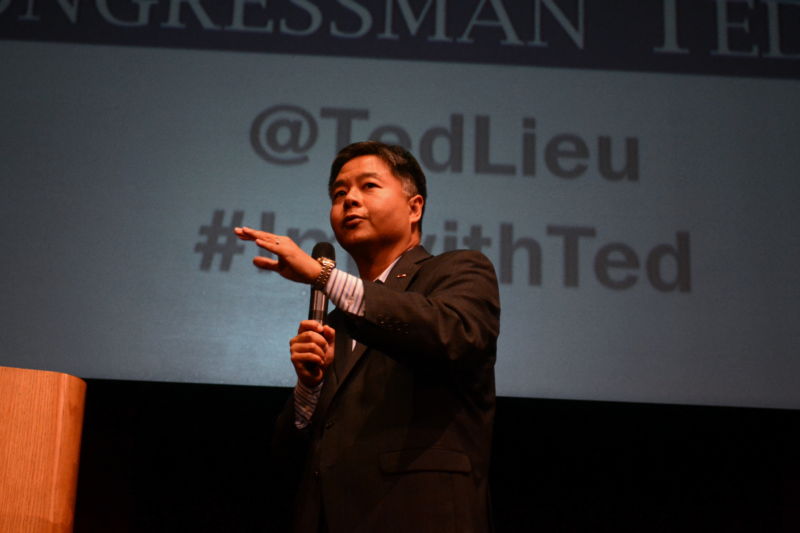
Earlier this month, under a new proposed policy, the Department of Homeland Security said it will begin collecting public social media information about immigrants—possibly also green card holders and naturalized citizens—and include them as part of their so-called "Alien File."
Because of this ambiguity, Rep. Lieu—who is very active on Twitter—has a basic question in a Friday letter for Acting DHS Secretary Elaine Duke: "Does your proposed rule apply to me?"
Lieu, who said he has lived in the United States for over four decades and who holds the rank of colonel in the United States Air Force Reserves, also raised concerns that if enacted, the rule will be ineffective. Why does he think this? Because DHS’ own inspector general report found in February 2017 that previous "social media screening" pilot programs "lack criteria for measuring performance to ensure they meet their objectives."
The move has also come under fire from advocacy groups, notably the American Civil Liberties Union."This Privacy Act notice makes clear that the government intends to retain the social media information of people who have immigrated to this country, singling out a huge group of people to maintain files on what they say," Faiz Shakir of the ACLU said in a statement. "This would undoubtedly have a chilling effect on the free speech that’s expressed every day on social media. This collect-it-all approach is ineffective to protect national security and is one more example of the Trump administration’s anti-immigrant agenda."
Meanwhile, DHS spokesman David Lapan said in accordance with department policy, it would not "comment on correspondence with the Secretary."
"However, this amendment does not represent a new policy," he added in an e-mail to Ars. "DHS, in its law-enforcement and immigration-process capacity, has and continues to monitor publicly-available social media to protect the homeland."
Lapan explained that the new entry in the Federal Registry was simply a notice to comply with administrative requirements.
Ars has responded with more follow up questions, and this post will be updated if more information becomes available.
UPDATE Monday October 2 5:11pm ET: Joanne Talbot, a DHS spokeswoman, explained further by e-mail.
"To clarify, this is not a new policy," she wrote. "Fyi, the privacy policy for the operational use of social media was published in 2012. This is just an amendment to that policy."
She added: "The Federal Register Notice states that previously captured information from any social media checks that took place up to naturalization will remain in the naturalized citizens Alien File, otherwise known as the A File. By law, USCIS will not continue to check the social media accounts of naturalized citizens. The attached presentation will help you understand how DHS uses its already-in place social media policy."
reader comments
130